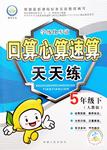题目内容
【题目】阅读下面材料,在空白处填入适当的内容(1个单词)或括号内单词的正确形式。
My grandfather is a (retire) worker. On summer evenings, weoften sat together outside the house (enjoy) the cool air. It was the time that he told me lots of his experiences before liberation.
When my grandfather was fourteen years old, he worked in a coal mine. One day, when he and his two workmates were working in the tunnel, an(fortune)thing suddenly happened. A part of the tunnel fell down, and they were shut init. They had no food (eat). When they were hungry, they onlydrank some water there. It was very cold in it. In order to keep warm, theyhugged one another. In the darkness, they didn’t know whether it was daynight, they only felt they had stayed there for a very long time. They were too hungry to speak or move, and thought they(die). At last, the tunnel(dig) through. They weresaved. They had been there for fourteen days! My grandfather said they weren’t let out at once. If, they would have died. They were kept at the entrance to the tunnel it was very dim, and they were fed some thin porridge. After a day or two, theyhad recovered a bit, and they were helped out.
【答案】Retired;enjoying;unfortunate;to eat;or;would die;was dug;so;where;on(或with)
【解析】①retired 考查形容词 。句意:我爷爷是个退休工人;
②enjoying 考查非谓语动词 。句意:夏日夜晚我们通常会坐房子外面,享受着凉爽的空气。
③unfortunate 考查形容词 。句意:一天,当他和他的两个式友正在工作时,不幸的事情发生了。
④to eat 考查非谓语动词 。句意:他们没有吃的;
⑤or 考查连词。句意:在黑暗中他们不知道白天还是晚上;
⑥would die 考查动词的时态。句意:他们太饿了而不能玉说话或动,认为他们要死了;
⑦was dug 考查动词的时态和语态。句意:最后,隧道被挖开;
⑧so 考查连词。句意:如果是这样的话,他们会死;
⑨where 考查定语从句。句意:他们呆在潮湿的隧道入口处,他们吃一些很稀的粥。
⑩on(或with) 考查动词短语。Feed on 以,,为生;

 补充习题江苏系列答案
补充习题江苏系列答案 学练快车道口算心算速算天天练系列答案
学练快车道口算心算速算天天练系列答案【题目】根据短文内容,从短文后的七个选项中选出能填入空白处的最佳选项。选项中有两项为多余选项。
Every animal sleeps,but the reason for this has remained foggy. When lab rats are not allowed to sleep, they die within a month.
One idea is that sleep helps us strengthen new memories. We know that, while awake,fresh memories are recorded by reinforcing (加强)connections between brain cells, but the memory processes that take place while we sleep have been unclear.
Support is growing for a theory that sleep evolved so that connections between neurons(神经元)in the brain can be weakened overnight, making room for fresh memories to form the next day.
Now we have the most direct evidence yet that he is right. The synapses in the mice taken at the end of a period of sleep were 18 per cent smaller than those taken before sleep,showing that the connections between neurons weaken while sleeping.
If Tononi`s theory is right, it would explain why, when we miss a night`s, we find it harder the next day to concentrate and learn new information —our brains may have smaller room for new experiences.
Their research also suggests how we may build lasting memories over time even though the synapscs become thinner. The team discovered that some synapses seem to be protected and stayed the same size. “You keep what matters,” Tononi says.
A. We should also try to sleep well the night before. |